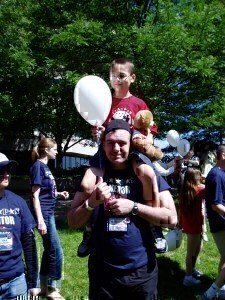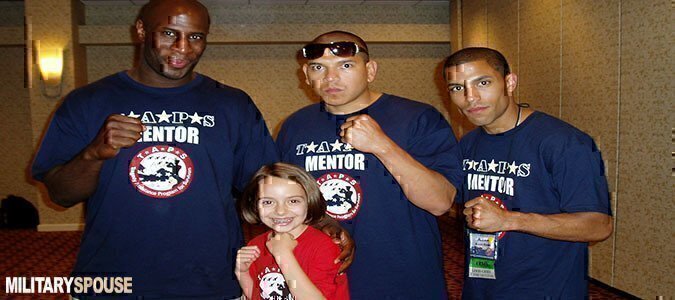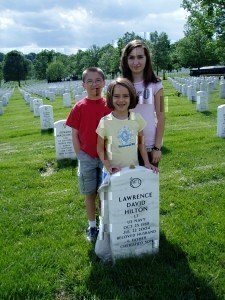MSM: In what ways did TAPS affect your family?
For me, TAPS offered reassurance that I would be able to make it through this tragedy that our family had experienced. I was able to connect with other women who’d also lost their husbands and gain strength and confidence through their experiences. If they survived it–I could too. It was also helpful to see that the thoughts and feelings I had that made me feel like I was going crazy were normal. I learned firsthand that TAPS was the only peer-based survivor support organization that provides care and compassion for families of the fallen, and seeing that the others who’d had losses had survived showed me that we would also.
MSM: Which TAPS resources were most helpful to you and your children?
Carole: The peer support TAPS offers have been most helpful to me and my children. Just being with people who were walking a similar path was comforting and healing; we felt understood and accepted. Although family and friends wanted to offer support, we could sense their feelings of helplessness and sympathy, and sometimes we ended up feeling like we had to comfort them. The empathy that fellow survivors offer and our ability to feel understood was, and is, extremely valuable.
The Good Grief Camps for children played a vital role. They provided my kids with the chance to drop their “mask” and to feel normal again. In the Good Grief Camp, they’re not the “kids without a Dad.” At TAPS, no explanations are needed and they can find kids who are just like them. Fitting in is very important to kids, and my kids felt that the Good Grief Camp was the one place they finally fit in.
MSM: What surprised you most about the grieving process? What would you want others who haven’t been through it to understand?
Carole: The thing that surprised me most about the grieving process is how insidious and overwhelming it is. It is more than just feeling very, very sad. Grief caused me to become more insecure as a parent since my husband was no longer there to talk about concerns for our children. It is very isolating–the person who had your back is gone. The shock and fog of grief impacts cognitive functioning so not only did I feel like I was losing my mind, I couldn’t concentrate as I used to. And finally, as a military spouse, I had made a commitment to support and sustain my husband in his military career and I had embraced that role. After his death, it actually took several years for me to develop my identity again and to figure out who I was and where I fit in. That struggle was totally unexpected.
What do I want others who haven’t been through it to understand….? Grief is not for sissies. It is hard. The hardest thing (I hope) I will ever do in my life. Ever. Probably more so because I am left to raise our three kids alone…but I never expected how hard it would be. I think it would have been helpful if someone had warned me of that, so I would have realized that I was normal. But through it I have learned we can get through almost anything if we have to.
MSM: How long do families typically stay involved with TAPS?

If you are suffering the loss of a military loved one, or if you know someone who can use support, please call TAPS’ toll-free help and information line now: 1-800-959-TAPS (8277). This line is manned 365 days a year, 24/7. For more information, visit taps.org
While TAPS has a close relationship with the military service branches, the Tragedy Assistance Program for Survivors is a not-for-profit organization and is not part of, nor endorsed by, the Department of Defense.










